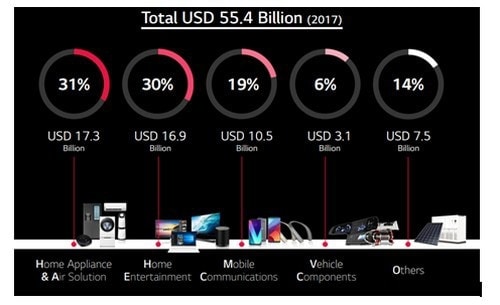Why LG is leaving the mobile phone business
In the late 1990s and early 2000s, every electronics manufacturer worth its salt was making mobile phones. Mobiles were no longer an expensive business accessory, but an essential consumer good and there were huge opportunities in a market that could accommodate many entrants. Much of the innovation was hardware-centric and the period saw rapid technological advances such as cameras and colour displays, coupled with experimental form factors. But the arrival of the smartphone changed everything – even stuffy BlackBerrys became desirable devices – and it was inevitable that there would be casualties. Many of the pioneers of the first wave of mobile phones faded into obscurity or exited the market entirely. The demise of BlackBerry and Nokia were high profile symbols of this changing of the guard, but now as we enter a new era of 5G-driven hyperconnectivity, we can add LG to the list.



Market difficulties
LG’s most recent flagship devices also failed to make a serious impact among consumers – a far cry from the heady days of the Chocolate. Although one bright spot has been the US, where its devices have proved historically popular and where it remains number three, but its market share has hovered between 9% and 13% in recent times. However, with a global share of just 2% and losses running into the billions, LG had come under pressure to pull the plug. “The question during the past few months wasn’t if LG would leave the mobile business, but how. Rumours had circulated that LG was in talks with various handset manufacturers about carrying on with LG-branded smartphones,” said Ben Wood, chief of research at CCS Insight. “But given the high value of the LG logo on other consumer electronics products and major appliances, LG’s leadership probably decided that the money offered wasn’t worth the loss of control and any potential damage to its reputation.” Wood suggests that the global chip shortage was also a factor: “Unlike its domestic rival Samsung, LG has undoubtedly found it hard to secure stable chip supplies and other components for its smartphones. This added hassle of bringing devices to market, and doing so at a loss, is likely to have been a major factor in LG’s cut-or-continue decision. It further highlights the incredible advantages of scale: major component suppliers such as Qualcomm will cater to the likes of Apple, Samsung and Xiaomi first.”


Why LG left the Mobile/Smartphone Market
The reason why LG decides to quit is they faced Loss over several billion dollars in Mobile department. The are many reasons for loss
1. Pricing( they are not pricing competitively)
2. Innovation ( am not saying they are bad at innovation , they are actually super excellent but they are innovating something for each and every mobile and not considering the innovation of previous Mobile, so developers also can't work well for that single Mobile)
3. Updates ( updates are usually slow from there track records)
4. Naming ( There is a big confusion in naming smartphone nowadays and LG is first of all , they will just name their smartphone with unusual order and very rare name which people can easily forget).